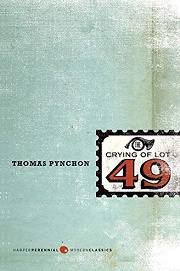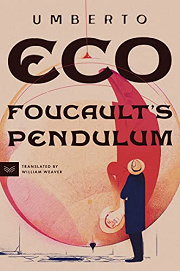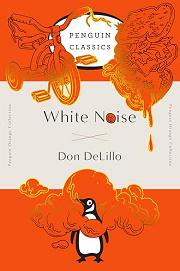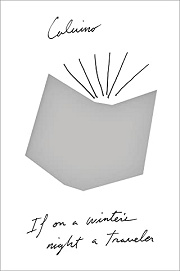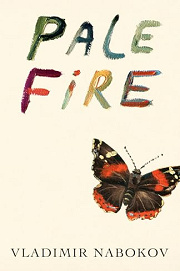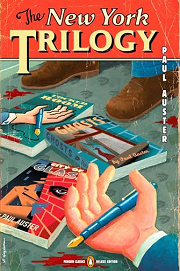Share your thoughts in a quick Shelf Talk!
The Crying of Lot 49 by Thomas Pynchon
A temp worker stumbles into a conspiracy—maybe—woven through secret mail routes, occult symbols, and a stamp auction that feels like a trapdoor. Reality frays as every clue opens onto another maze. The Crying of Lot 49 is a razor-sharp, playful puzzle that invites you to question what’s signal, what’s noise, and what it means to connect at all.
Have you read this book? Share what you liked (or didn’t), and we’ll use your answers to recommend your next favorite read!
Love The Crying of Lot 49 but not sure what to read next?
These picks are popular with readers who enjoyed this book. Complete a quick Shelf Talk to get recommendations made just for you! Warning: possible spoilers for The Crying of Lot 49 below.
In The Crying of Lot 49, did you enjoy ...
... a paranoid, clue-by-clue investigation into a possibly invented conspiracy?
Foucault's Pendulum by Umberto Eco
You followed Oedipa from Inverarity’s will to stamps with the muted post horn, to Stanley Koteks at Yoyodyne and the ominous echoes of Tristero in “The Courier’s Tragedy.” Eco gives you that same vertigo: editors Belbo, Casaubon, and Diotallevi start connecting scraps of occult lore and publishing ephemera into a grand “Plan” that might be a joke—or the key to everything. If tracing W.A.S.T.E. drop boxes thrilled you, the Templar maps, coded files, and spiraling pattern-hunting here will scratch the exact same itch.
... deadpan satire of American media culture and consumer dread?
White Noise by Don DeLillo
If you laughed at the skewering of California kitsch—KCUF radio patter, Yoyodyne’s corporate doublespeak, Mucho Maas dissolving into the noise of pop—and at Dr. Hilarius’s absurd sessions, you’ll click with DeLillo’s campus celebrity Jack Gladney and his supermarket epiphanies. The “Airborne Toxic Event,” miracle drugs like Dylar, and TV’s numbing babble deliver the same mix of comic unease and existential static that buzzes through Oedipa’s San Narciso.
... playfully self-aware storytelling that keeps questioning what’s real on the page?
If on a winter's night a traveler by Italo Calvino
When Oedipa deciphers history through a Jacobean revenge play and scholarly footnotes—letting texts rewrite reality—you’re already primed for Calvino’s game. Here, you become the reader-detective, chasing ten beginnings across botched translations, shadowy publishers, and narrative switchbacks. If the way “The Courier’s Tragedy” warped your sense of the plot delighted you, this novel’s meta-sleights will feel like the same wink, just held longer.
... a tale nested inside annotations and dubious scholarship you must decode?
Pale Fire by Vladimir Nabokov
Oedipa sifts pamphlets, stamp catalogs, and Professor Emory Bortz’s notes to glimpse Tristero’s outline. Nabokov hands you a 999-line poem by John Shade and lets the commentator, Charles Kinbote, spin an alternate saga of Zembla, assassins, and exile. As with the muted post horn, you’re left to decide whether the clues reveal a hidden network or just the commentator’s obsessions. The pleasure is in reading between the lines.
... enigmatic symbols turning a detective story into an allegory about meaning?
The New York Trilogy by Paul Auster
If the muted post horn felt like a sign that might mean everything—or nothing—Auster’s detectives will haunt you. In “City of Glass,” Quinn tails Stillman through Manhattan’s grids, filling red notebooks with patterns as identity thins to smoke. Like Oedipa chasing W.A.S.T.E. drop boxes and secret couriers, the pursuit becomes a meditation on language, authorship, and how we invent conspiracies to keep chaos at bay.
Unlock your personalized book recommendations! Just take a quick Shelf Talk for The Crying of Lot 49 by Thomas Pynchon. It’s only a few questions and takes less than a minute.
